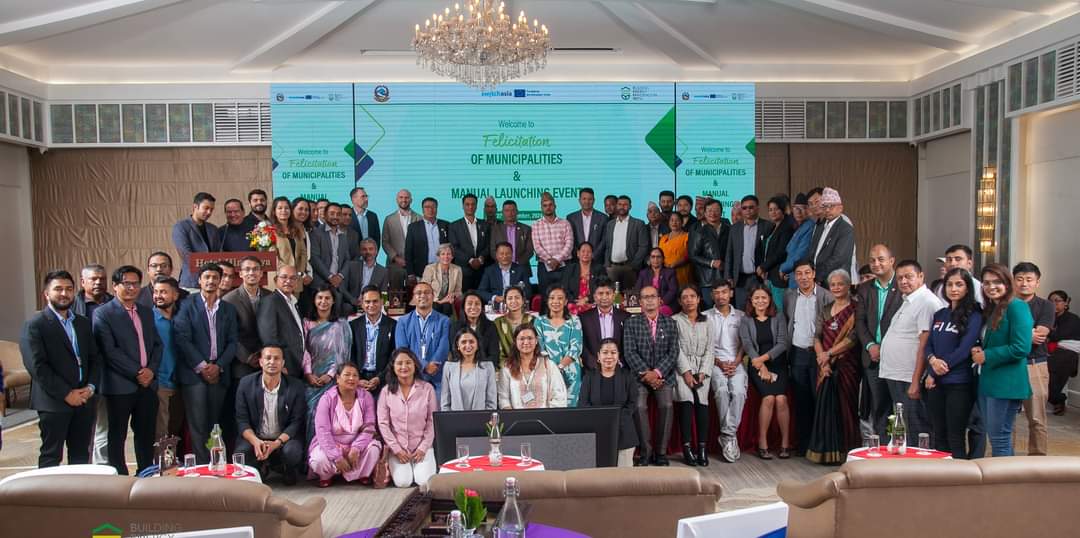In a significant move towards sustainability, 12 municipalities from the Bagmati, Lumbini, and Gandaki provinces have been honored for their leadership in reducing the carbon footprint of the building sector. These municipalities, with guidance from the BEEN (Building Energy Efficiency in Nepal) project, have successfully developed and approved energy-efficient building by-laws. Their efforts are setting a new standard for sustainable urban development and paving the way for a greener, low-carbon future in Nepal.

Among the municipalities recognized for their proactive stance are Pokhara Metropolitan City, Hetauda Sub-Metropolitan City, Ghorahi Sub-Metropolitan City, Dhulikhel Municipality, Chandragiri Municipality, Changunarayan Municipality, Kamalamai Municipality, Manthali Municipality, Manahari Rural Municipality, Bhimeshwor Municipality, Baragung Muktikshetra Rural Municipality, and Thakurbaba Municipality.
These municipalities have taken bold steps to integrate energy-efficient practices in the building sector, aligning with global efforts to reduce emissions and promote sustainable urban development. Their actions mark a significant milestone in Nepal’s journey towards achieving its climate goals, with the potential to inspire other municipalities to adopt similar measures.
The BEEN project, supported by the EU SWITCH-Asia Programme and in collaboration with partners like Greentech Knowledge Solutions (GKSPL) and Universität Innsbruck, is playing a crucial role in guiding municipalities through the technical and policy frameworks necessary for this transformation.
This achievement signals a promising shift towards eco-friendly urban planning and contributes to Nepal’s broader climate resilience strategy. With the backing of international partners such as the European Union in Nepal, these municipalities are setting an example that other regions can follow, leading the way for sustainable growth and development across the country.